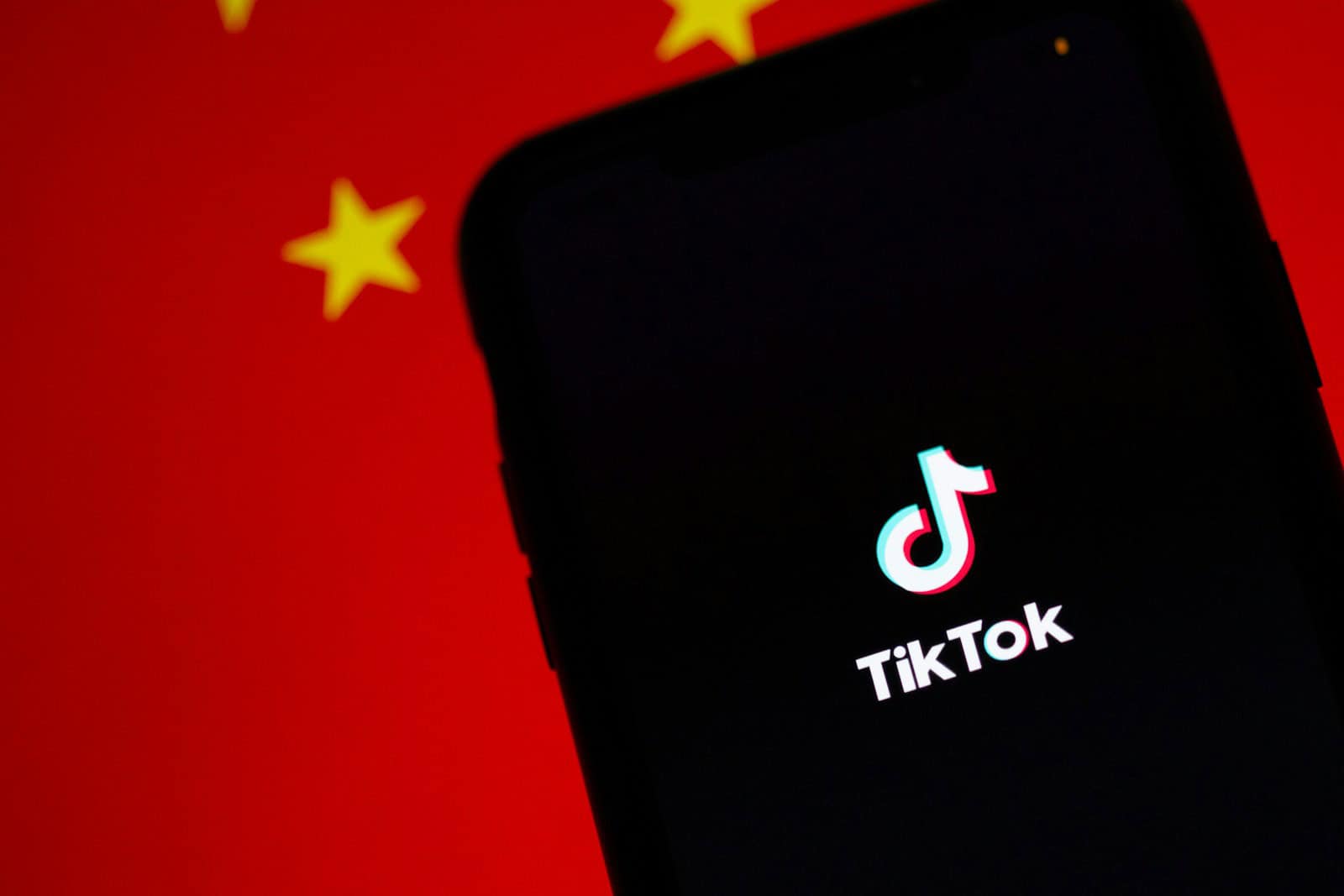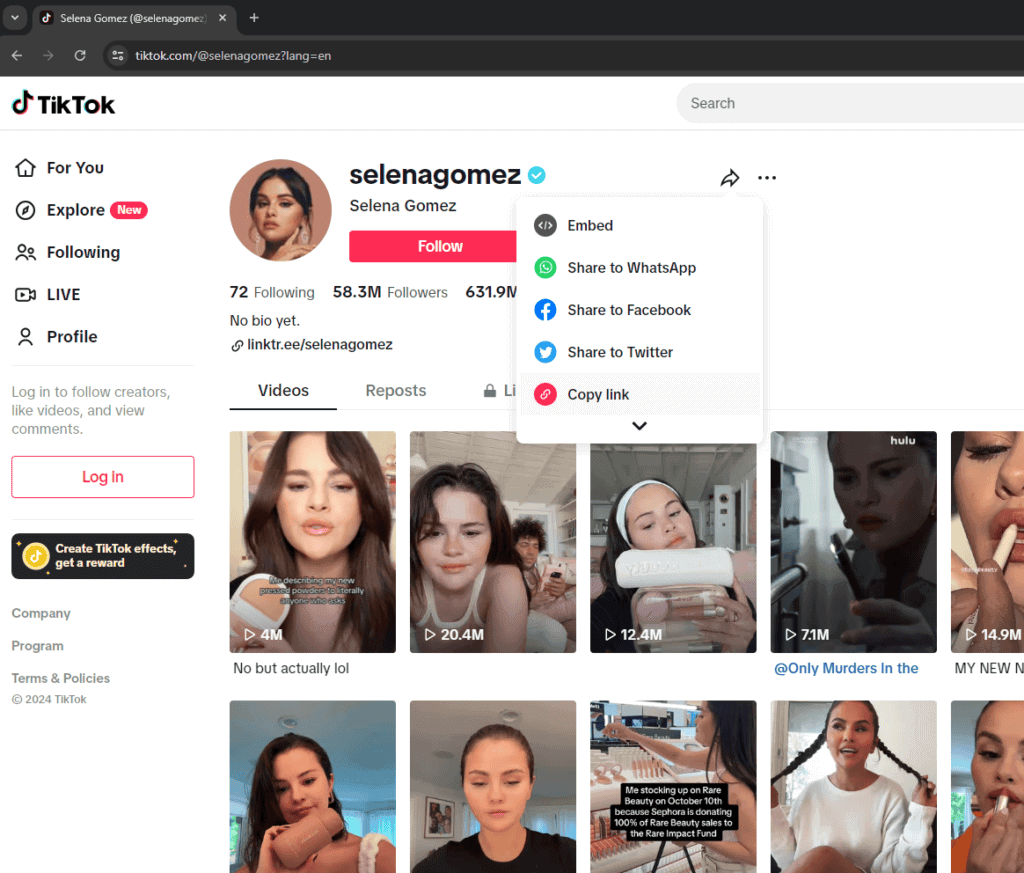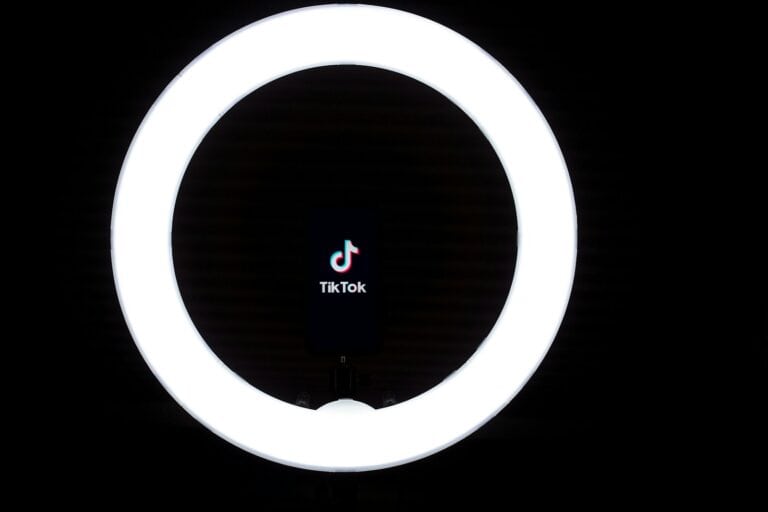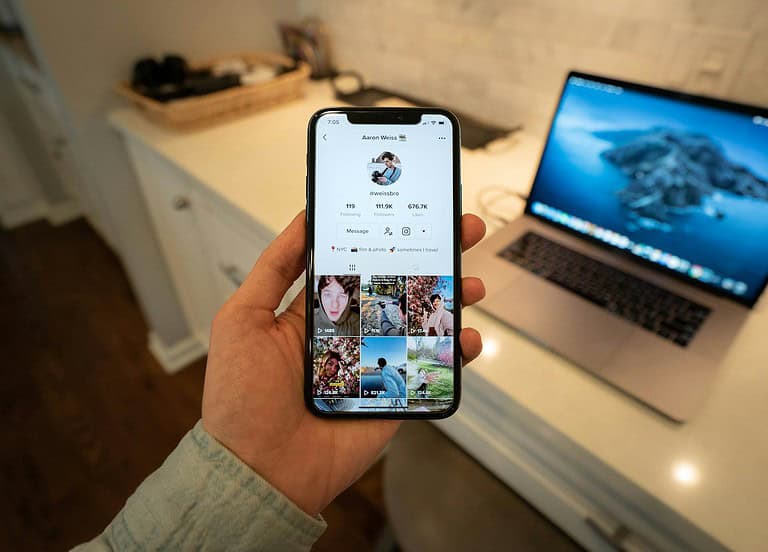
The US government is considering a bold move to acquire TikTok through the creation of a sovereign wealth fund. President Trump recently signed an executive order directing the Treasury and Commerce Departments to establish this fund, which could potentially own a significant stake in the popular social media app.
The proposed sovereign wealth fund could allow the US government to own up to 50% of TikTok’s US operations. This initiative aims to address national security concerns related to TikTok’s Chinese ownership while preserving the app’s availability for American users. The move represents a unique approach to balancing economic interests with national security priorities.
The potential acquisition of TikTok by a US government-backed entity marks a significant shift in the ongoing debate surrounding the app’s future in the United States. This development raises questions about the role of government in private enterprises and the implications for international business relations.
TikTok’s Uncertain Future: A Sovereign Wealth Fund Solution?

The TikTok Dilemma: National Security Concerns
TikTok’s popularity is undeniable. Millions of Americans use the app daily. However, its Chinese ownership by ByteDance has raised concerns about data privacy and potential influence operations. The US government worries about user data falling into the hands of the Chinese government and the possibility of TikTok’s algorithms being manipulated for propaganda purposes. This has led to legislative efforts aimed at forcing ByteDance to divest TikTok’s US operations or face a ban.
The Sovereign Wealth Fund Proposal: A Potential Solution
Former President Trump has suggested a novel solution: a US sovereign wealth fund could acquire TikTok. This fund, recently established by executive order, would be a government-backed investment vehicle. The idea is that by bringing TikTok under US government control, the national security risks would be mitigated. This proposal, however, raises its own set of questions.
How Would a Sovereign Wealth Fund Acquisition Work?
The specifics of how such an acquisition would work are still unclear. The sovereign wealth fund’s structure, funding sources, and investment strategy are yet to be defined. Would the fund be solely focused on acquiring TikTok, or would it have a broader mandate? How would the government ensure TikTok’s independence from political influence? These are all crucial questions that need to be answered. There are precedents for government involvement in strategically important industries, but a social media platform is uncharted territory.
Pros and Cons of Government Ownership
Government ownership of TikTok presents both potential benefits and drawbacks.
| Pros | Cons |
|---|---|
| Mitigates national security risks | Potential for government censorship |
| Ensures data privacy | Concerns about government overreach |
| Maintains competition in the social media market | Possible stifling of innovation |
Alternative Solutions: What Are the Options?
Besides a sovereign wealth fund acquisition, other options exist for addressing the TikTok issue. These include:
- Forced Divestiture: Requiring ByteDance to sell TikTok to a US company. This is the approach favored by current legislation.
- Data Security Agreements: Implementing strict data security protocols and oversight mechanisms to mitigate the risks associated with Chinese ownership.
- Complete Ban: Prohibiting TikTok’s operation in the US altogether. This is the most drastic measure and would likely face legal challenges.
The Future of TikTok: Uncertainty Remains
TikTok’s future remains uncertain. The legal challenges to the divestiture law, combined with the complexities of the sovereign wealth fund proposal, mean that the situation could take many different turns. The final outcome will have significant implications for the regulation of social media and the relationship between the US and China.
Beyond TikTok: The Broader Implications
The TikTok saga is part of a larger conversation about the role of foreign-owned social media platforms in democratic societies. Similar concerns have been raised about other apps and platforms, particularly those with ties to adversarial governments. The way the TikTok situation is resolved could set a precedent for how these issues are addressed in the future.
It highlights the increasing tension between national security, free speech, and the global nature of the internet. The discussion also raises questions about data localization, algorithm transparency, and the potential for foreign influence on public opinion. As social media becomes increasingly central to our lives, these are issues that we will need to grapple with for years to come. The future of online communication and information sharing depends on finding solutions that balance competing interests and protect both national security and individual liberties.
Key Takeaways
- The US government is exploring TikTok ownership through a new sovereign wealth fund
- President Trump signed an executive order to initiate the fund’s creation
- The proposed deal could give the US government up to 50% ownership of TikTok’s US operations
Understanding the US Government’s Motivations
The ongoing debate about TikTok and who will own it highlights how important social media is becoming in global politics. This situation is not just about one app; it represents a larger issue of balancing national security with free speech and open markets in our connected world. Decisions about TikTok could have wide-ranging effects, influencing online communication and international relations for years to come.
This also emphasizes the need for clear rules about data sharing across borders and how foreign tech companies operate in different countries. The absence of such rules has added to the confusion around TikTok and similar platforms.
The US government’s interest in TikTok stems from complex national security issues and data privacy concerns. These factors have prompted legislative and executive actions aimed at addressing perceived threats.
National Security Concerns
TikTok’s Chinese ownership raises red flags for US officials. ByteDance, TikTok’s parent company, is based in Beijing. This connection sparks fears of potential Chinese government influence over the platform.
US authorities worry about data access and manipulation. They fear Chinese officials could compel ByteDance to share user information. This could potentially expose sensitive data of US citizens.
The app’s popularity among young Americans adds to these concerns. TikTok has over 100 million US users. Many are teenagers and young adults. This demographic often includes military personnel and government employees.
TikTok’s Data Collection Practices
TikTok gathers extensive user data. This includes location information, browsing history, and device details. The app also collects biometric data like face and voice prints.
Critics argue this data collection is excessive. They claim it goes beyond what’s needed for app functionality. Some fear this information could be used for surveillance or influence campaigns.
TikTok maintains that US user data is stored domestically. The company claims Chinese employees can’t access this information. However, skeptics question these assurances.
Legislative and Executive Actions
The Trump administration took strong action against TikTok. In 2020, President Trump issued executive orders targeting the app. These aimed to force a sale of TikTok’s US operations to American owners.
Congress has also shown concern. Bipartisan support exists for measures to address TikTok-related risks. Some lawmakers push for a complete ban on the app.
The Biden administration continues to scrutinize TikTok. It has maintained the national security review started under Trump. Negotiations between TikTok and the government are ongoing.
Proposed solutions include data storage restrictions. Some suggest appointing US-based leadership for TikTok’s American operations. The creation of a new US-based entity to oversee TikTok is also under consideration.
The Path to US Ownership of TikTok
The US government explores various routes to acquire TikTok. Proposed deals, key players, and financial considerations shape potential ownership structures.
Proposed Deal Structures
Perplexity AI suggests a new company called “NewCo” for TikTok’s US operations. This plan includes up to 50% US government ownership in a future IPO. ByteDance would transfer TikTok’s assets to NewCo.
Other proposals involve US investors and tech companies. Oracle emerged as a potential buyer, with backing from the Trump administration. Microsoft also showed interest in acquiring TikTok’s US operations.
A bipartisan law now requires ByteDance to sell TikTok to an American entity or face a ban. This adds urgency to negotiations and deal structures.
Key Players and Negotiations
ByteDance, TikTok’s parent company, leads discussions from the seller side. The US government plays a crucial role, with the White House and Committee on Foreign Investment in the United States (CFIUS) overseeing negotiations.
Oracle, led by Larry Ellison, stands out as a key bidder. The company met with White House officials to discuss a potential deal. Microsoft previously partnered with Walmart for a joint bid but later dropped out.
Steven Mnuchin, former Treasury Secretary, was involved in early TikTok sale talks. His expertise in finance and government relations proved valuable during negotiations.
Financial Implications and Valuation
TikTok’s valuation remains a topic of debate. Estimates range from $20 billion to $50 billion, reflecting the app’s rapid growth and market potential.
The proposed deal structures impact TikTok’s financial outlook. A US government stake could affect the company’s valuation and future earnings potential. Investors weigh the risks and rewards of partnering with a partially government-owned entity.
ByteDance’s stake in TikTok’s US operations is a key negotiation point. The company seeks to retain some ownership, while US officials push for a clean break. This balance affects the final deal value and structure.
Potential Impacts and Challenges
A US government takeover of TikTok through a sovereign wealth fund would have far-reaching consequences. This move would affect users, creators, and the legal landscape, while also presenting significant technological hurdles.
Impact on Users and Creators
TikTok’s 170 million American users face uncertainty. A government-run TikTok might change content policies, affecting what users can post and view. Creators who rely on TikTok for income could see their livelihoods disrupted.
The platform’s algorithm, a key feature, might be altered. This could change how content is recommended and discovered. Users may need to adapt to new features or interface changes.
Privacy concerns may arise. Users might worry about increased government access to their data. This could lead to a drop in user engagement or an exodus to alternative platforms.
Legal and Regulatory Hurdles
The First Amendment poses a significant challenge. Government control of a social media platform raises free speech concerns. Courts may scrutinize content moderation decisions more closely.
National security arguments for the takeover could face legal challenges. TikTok’s current owners might sue, claiming unfair treatment or violation of international trade agreements.
Regulatory bodies would need to establish new frameworks. Oversight of a government-run social media platform is uncharted territory. This could lead to lengthy policy debates and potential legislative action.
Technological and Operational Transition
Transferring TikTok’s complex technology infrastructure to government control presents major challenges. The transition could disrupt service and require extensive software updates.
Artificial intelligence and machine learning models that power TikTok’s recommendations might need rebuilding. This could temporarily reduce the quality of user experience.
Cybersecurity would be a top priority. The government would need to ensure robust protection against hacks and data breaches. This might require significant investments in new security measures.
Retaining key technical talent could prove difficult. Many employees might be reluctant to work for a government-run entity. This brain drain could slow innovation and platform improvements.
Sovereign Wealth Fund and Global Operations
The establishment of a U.S. sovereign wealth fund marks a significant shift in economic strategy. This new entity aims to manage national assets and make strategic investments globally, potentially including a stake in TikTok.
Establishment and Funding
President Trump signed an executive order directing the creation of a U.S. sovereign wealth fund. The Treasury and Commerce Departments will oversee its formation. Initial funding could reach $300 billion, sourced from various government assets and reserves.
The fund’s structure may mirror successful models like Norway’s Government Pension Fund Global or Abu Dhabi Investment Authority. Congress will likely play a key role in approving the fund’s creation and setting its operational guidelines.
Public offerings could provide additional capital, allowing U.S. citizens to invest directly in the fund’s growth and success.
Strategic Management and Investments
The fund will focus on strategic global investments to boost U.S. economic interests. It may target high-growth sectors like technology, renewable energy, and infrastructure.
TikTok stands out as a potential early investment target. The fund could acquire a significant stake in the popular social media platform, addressing national security concerns while capturing value for U.S. taxpayers.
A board of directors with finance and investment expertise will guide the fund’s strategy. They will balance risk and return while adhering to ethical investment principles.
The fund’s global operations will require careful diplomacy. It must navigate complex international regulations and market conditions to maximize returns for the American people.
Frequently Asked Questions
The potential US government takeover of TikTok through a sovereign wealth fund raises numerous questions. This section addresses key concerns about data privacy, legal implications, and international relations.
What is a sovereign wealth fund and how does it relate to the potential US Government involvement with TikTok?
A sovereign wealth fund is a state-owned investment fund. It manages a country’s excess financial resources. The US government may use this type of fund to acquire TikTok. This approach would allow the government to control TikTok’s operations and data.
How could a takeover of TikTok by the US Government influence data privacy and security concerns?
A US government takeover of TikTok could increase data protection. The government would have direct oversight of user information. This might lead to stricter privacy policies and enhanced security measures.
US authorities could implement more rigorous data handling practices. They might also limit data sharing with foreign entities.
What are the legal implications of the US Government establishing a sovereign wealth fund to acquire a company like TikTok?
The creation of a sovereign wealth fund to acquire TikTok raises complex legal questions. It may face challenges under antitrust laws and free market principles.
Constitutional issues could arise regarding government control of a social media platform. First Amendment concerns about free speech might emerge.
What potential impacts would a US Government takeover of TikTok have on the app’s user base and content creators?
A government takeover could affect TikTok’s user experience and content policies. Some users might leave due to concerns about government surveillance.
Content creators may face new guidelines or restrictions. This could alter the type of content produced on the platform.
In what ways might US-China relations be affected by the US Government’s actions towards TikTok?
US government action against TikTok could strain US-China relations. China may view this as an aggressive move against its tech companies.
Trade tensions between the two countries might escalate. China could retaliate against US companies operating within its borders.
How have other countries responded to the notion of the US Government establishing a sovereign wealth fund to manage TikTok?
Other nations have expressed mixed reactions to the US government’s potential TikTok takeover. Some countries support the move as a way to address data security concerns.
Others view it as a form of digital protectionism. They worry about the precedent it sets for government intervention in tech companies.




